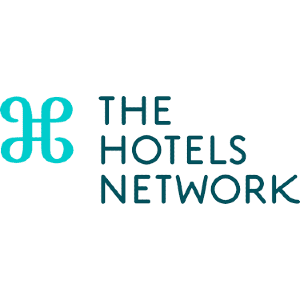 As the old saying goes: ÒThere’s a fine line between love and hate.Ó The same could be said for your revenue strategy and its ability to positively impact your hotel’s profits. Play your cards strategically and insightfully, and your hotel reaps rich and profitable rewards. But take a turn toward lackadaisical revenue approaches, and you just might experience the heartbreak of disappointing KPIs and mediocre market performance.
As the old saying goes: ÒThere’s a fine line between love and hate.Ó The same could be said for your revenue strategy and its ability to positively impact your hotel’s profits. Play your cards strategically and insightfully, and your hotel reaps rich and profitable rewards. But take a turn toward lackadaisical revenue approaches, and you just might experience the heartbreak of disappointing KPIs and mediocre market performance.
Are you falling victim to some of the classic mistakes many hotels make with their revenue strategy? Here are 10 ways your hotel could be losing out on revenue:
1. Not understanding your channel costs
Not accounting for acquisition costs means you aren’t fully realizing the expected windfall of all of your offers Ð which directly impacts the net revenue results from new or existing distribution channels. To accurately track costs, effective best practices and standards should be structured around the proper use of business coding and data collection. This helps ensure your available data is accurate and suitable for digging into new channel performance opportunities.
2. Not measuring the impacts of your pricing strategy
If you’re adjusting your rate, do you understand and measure the impact of that pricing change? If you’re lowering your rate, will your discounted offer produce enough incremental reservations to exceed the revenue expectations of the previous or non-discounted rate? For example, would you rather accept 10 reservations at a $500 rate or 12 at a $400 rate? If you lower your rate to $400, there needs to be demand for a minimum of 13 reservations to exceed the revenue potential of the previous offer. Revenue technology and booking reports are great tools to help you measure these types of pricing impacts.
3. Not understanding what market to put your marketing dollars in
Travel intent data uses search and booking data from third-party booking sites and OTAs to help quantify the demand your hotel can expect for future dates. This type of predictive demand intelligence provides you with human-focused insights that allow you to market strategically with specific ad placements and personalized offers ÐÊin your most profitable distribution channels.
4. Stimulating offers without understanding their typical booking windows
Setting a discount offer that doesn’t fall into the typical booking window of a targeted segment won’t help you produce your desired revenue results. If the typical booking window is 30 days out, and you stimulate a discounted offer two weeks out, the booking window has already passed and the offer won’t drive the revenue you were looking for. This is where the dashboard and reporting features in your RMS can help you understand the booking windows of your different market segments.
5. Contracting negotiated accounts on relationship, rather than production and revenue technology
Nearly every hotel has that company they’ve negotiated contract rates with for 10-plus years. While the company promises X amount of rooms, they never end up achieving it and the hotel keeps them at price tier for a volume they don’t achieve. Revenue technology is an invaluable tool for helping you hash out the booking history and details of rate discounts so you can maximize revenue and still offer an attractive rate for repeat business year after year.
6. Not having enoughÊcooks in the revenue management kitchen
Who is being represented in your weekly revenue management meetings? In addition to your general manager, are you including group sales, the director of sales, marketing, front office and e-commerce? Remember: Having the right constituents in your corner leads to a broader understanding of your hotel’s overall revenue goals Ð and cascades into their respective departments.
7. Overplaying your demand hand
In situations with extraordinary demand, it’s important to recognize that a special event or city-wide conference mayÊcause a reduction in your market’s typical demand. Take the United Nations General Assembly, for example. Over this event period, New York City’s base demand is not typical because everyone knows it’s a high demand period and they may choose to visit New York over another week, rather than pay the high demand rates with possible LOS restrictions over UNGA. It’s vital to understand that your market’s extra demand is not necessarily going to be on top of your typical business demand.
8. Not focusing on filling occupancy valleys
Revenue managers often have a dedicated focus on maximizing demand peaks, rather than minimizing their demand valleys. This common oversight represents a lost revenue opportunity for many hotels and revenue managers.
9. Not understanding that demand is alsoÊa function of price
Demand for your property fluctuates with the price point in the market. Raising your rates may not see the full demand come to fruition and lowering your rates does not necessarily increase market demand.
10. Not focusing on the real goal at hand: maximizingÊprofit
Too often the message to revenue managers is to increase revenue through occupancy or targeted ADR goals. Neither of these necessarily Òcash at the bank,Ó and overall profitability and GOP should be your hotel’s focus and revenue strategy.
It can be extremely easy to succumb to these common and unintentional revenue management pitfalls. But not only are these ways losing you revenue, they’re also 10 reasons why it’s finally time to break up with your bad revenue strategy habits.
By Digna Martinez Kolar

Working intimately with hotels all over the world, Digna Martinez Kolar boasts a strong global background in hotel operations, revenue management, consulting and strategic pricing. As the Senior Advisor at IDeaS Revenue Solutions, Digna leads advisory services initiatives for the Americas region, assisting hospitality companies of all sizes to build and enhance their total revenue performance and price optimization capabilities. Prior to joining the IDeaS global team, Digna spent 11 years in leadership roles at InterContinental Hotels Group (IHG). Her roles with IHG previously included the Regional Head of Revenue Management for Japan, Korea, the Middle EastÊand Africa, as well as the Global Pricing ImplementationÊand Business Integration Manager. Having deep expertise in the deployment and structuring of pricing and revenue management processes, Digna helps clients build sustainable revenue management cultures in multi-cultural and diverse organizational environments. Digna holds an MBA in Hospitality Management IMHI, a joint program of Cornell University and ESSEC, and currently lives in sunny California with her husband.















